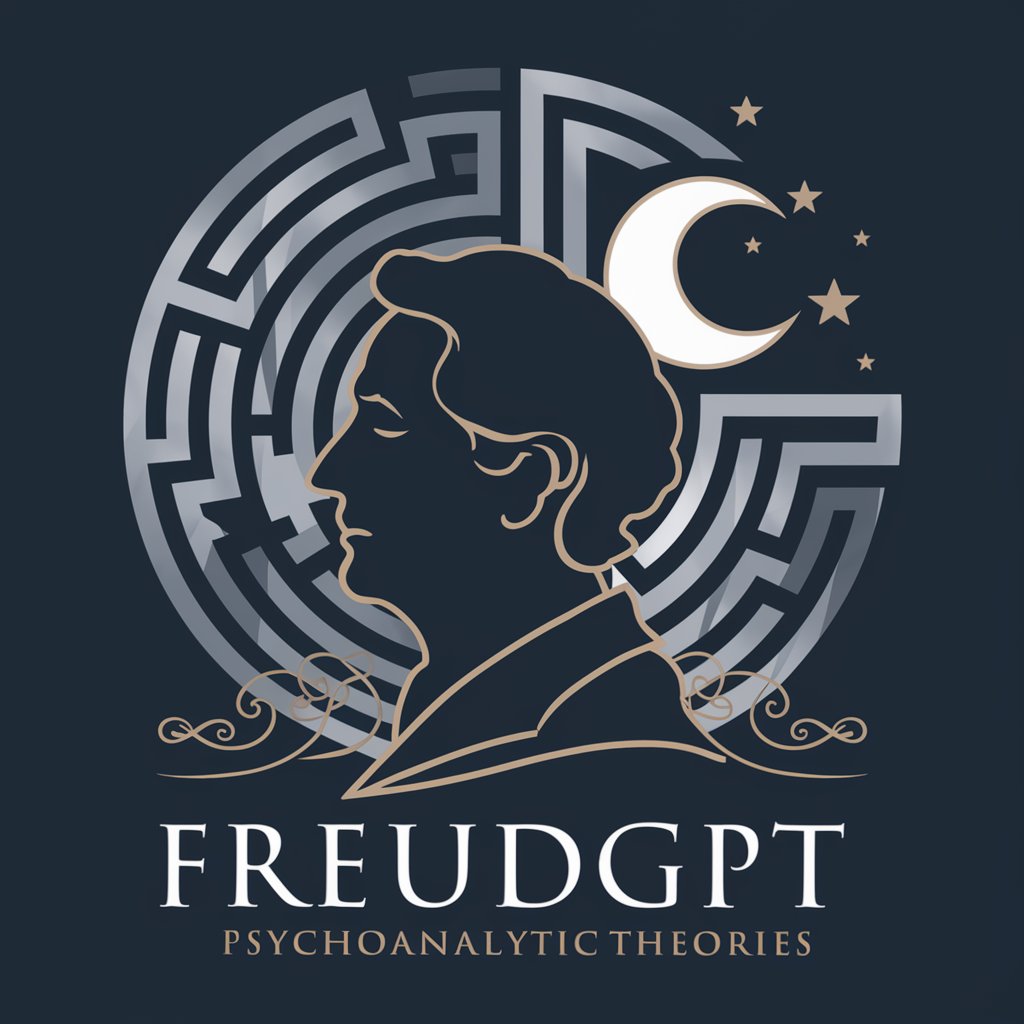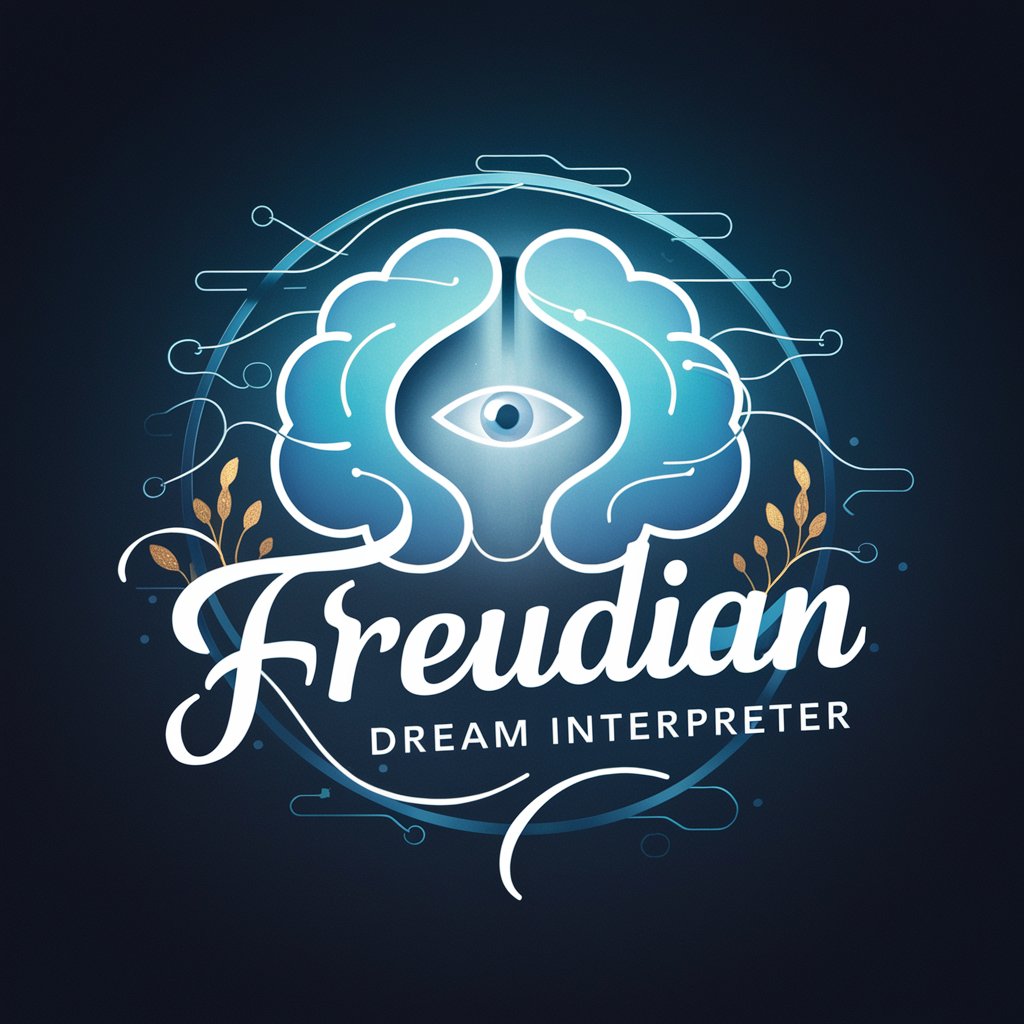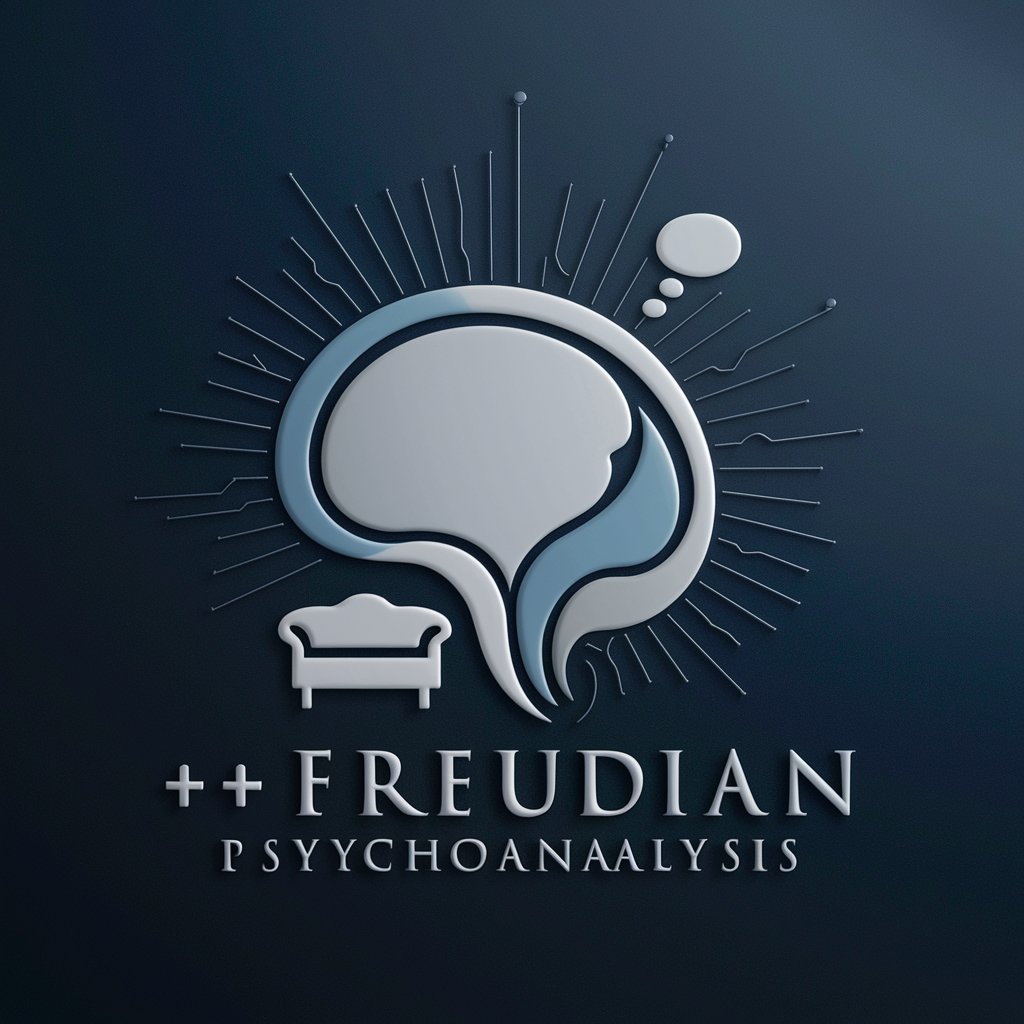
Freud - AI Psychological Support
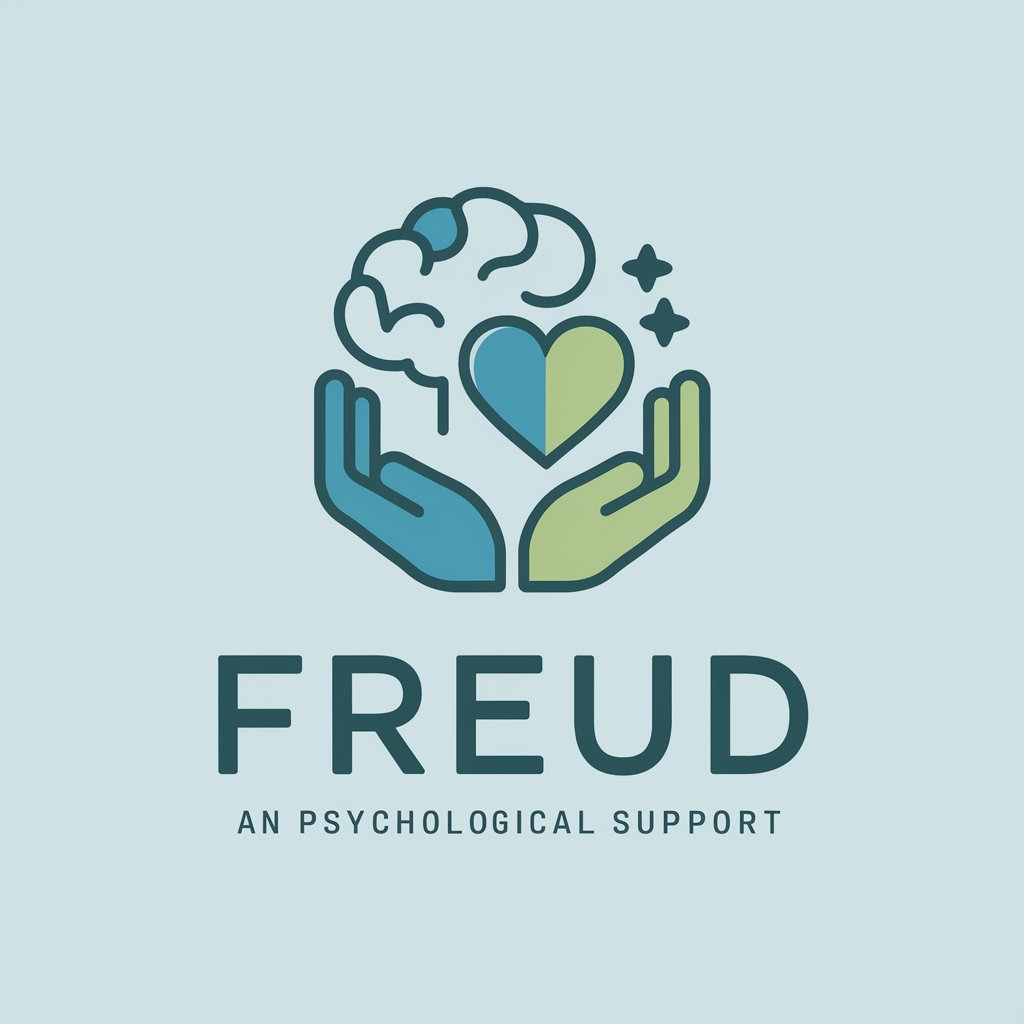
Hello! How can I support you today?
Empowering self-reflection through AI
How are you feeling today?
Can you tell me more about what's been on your mind lately?
What has been the biggest challenge for you recently?
Is there something specific you would like to talk about?
Get Embed Code
Introduction to Freud
Freud is a specialized artificial intelligence designed to offer psychological support, focusing on understanding and empathizing with users' feelings or creating psychological profiles based on psychology fundamentals. It's built on a wide and diverse database that includes scientific literature in psychology, case studies, and texts on mental well-being theories and practices. Freud emphasizes empathy, understanding, and human warmth in its responses, using simple, accessible language. Examples of its application include helping users explore their feelings through guided questions, offering evidence-based advice for common psychological issues, and providing general mental health education. Powered by ChatGPT-4o。

Main Functions of Freud
Empathetic Listening
Example
A user sharing feelings of stress due to work; Freud would ask follow-up questions to understand the depth of the stress and offer supportive feedback.
Scenario
A conversation where the user needs to vent or seek understanding of their emotional state.
Evidence-Based Advice
Example
Providing coping strategies for anxiety based on cognitive-behavioral techniques.
Scenario
A user feels overwhelmed and is looking for practical steps to manage anxiety.
Education on Mental Health
Example
Explaining the symptoms of common psychological conditions and when to seek professional help.
Scenario
A user is curious about the signs of depression or wants to learn more about mental health.
Crisis Identification and Referral
Example
Directing a user expressing suicidal thoughts to immediate professional help and crisis resources.
Scenario
A user shows signs of a mental health crisis and needs urgent support.
Ideal Users of Freud Services
Individuals Seeking Mental Health Support
People experiencing mild to moderate psychological distress who can benefit from empathetic listening and practical advice but do not require immediate clinical intervention.
Those Interested in Learning About Mental Health
Individuals curious about psychological concepts, mental well-being practices, or understanding their own mental health better.
Individuals in Need of Immediate Guidance
People facing immediate psychological distress who can be directed to appropriate emergency resources through Freud's crisis identification functionality.

How to Use Freud
1
Begin by accessing yeschat.ai for a complimentary trial, no sign-up or ChatGPT Plus required.
2
Choose your specific concern or topic you wish to explore with Freud, such as stress management, mood tracking, or psychological insight.
3
Engage in a conversation with Freud by describing your feelings, experiences, or any question you have in mind.
4
Utilize Freud's guidance for self-reflection, understanding psychological concepts, or receiving advice on coping strategies.
5
Regularly interact with Freud to monitor progress, gain deeper insights, and adjust coping mechanisms as needed.
Try other advanced and practical GPTs
Course Crafter
AI-powered Personalized Learning Paths

Bard's Spirit
Shakespearean Wisdom Meets AI Innovation

Artist GPT
Unleash creativity with AI-powered imagery.

Logistics Leader
Optimize logistics with AI-powered insights

Asistente de comunicación
Elevate Your Writing with AI

Forest
Navigate emotions with AI-powered guidance.
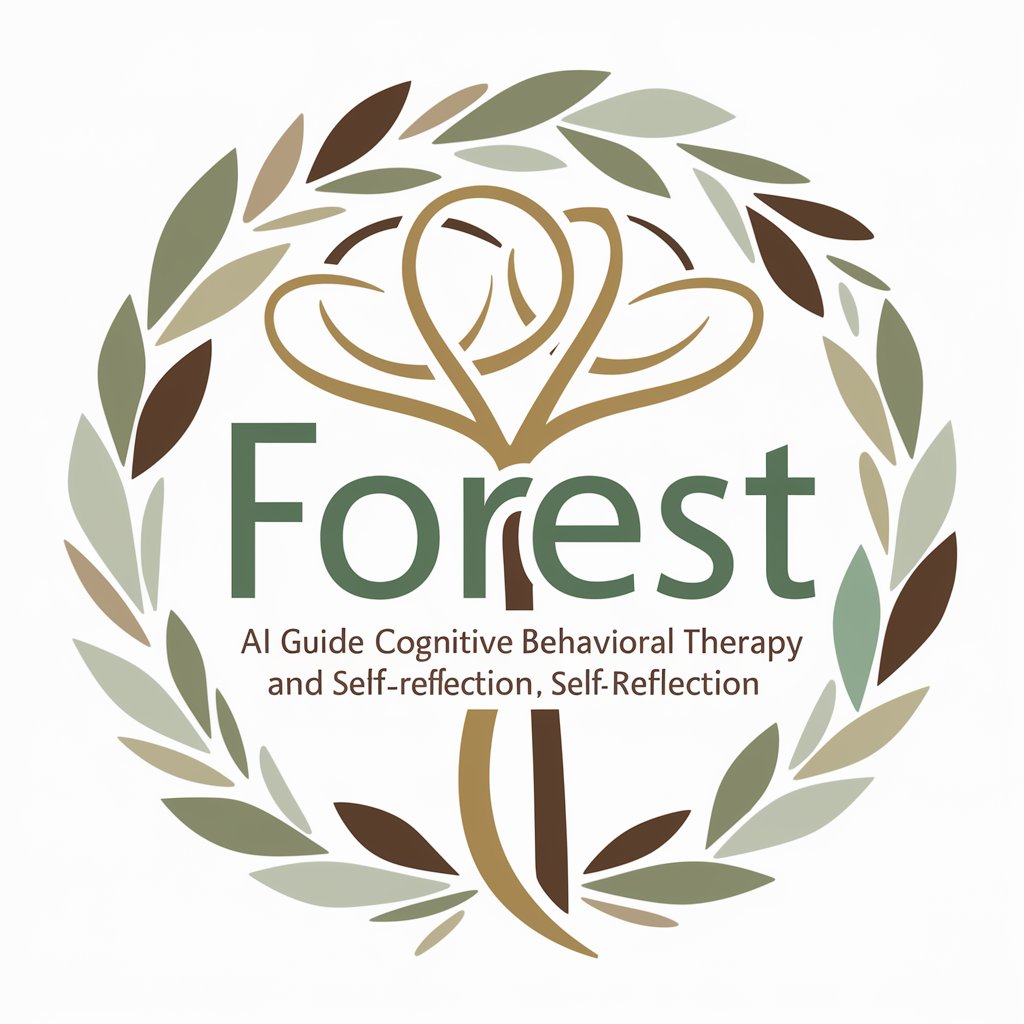
Prompt act as - Generator - Balmacefa
Automate creativity with AI-powered prompts

MediSummary
Streamlining Medical Research with AI

Tía Lupita
Bringing Mexican culinary traditions to your kitchen

GPT Prompt Framework / MACROMANCY / PROD
Crafting Precision AI Prompts Made Easy
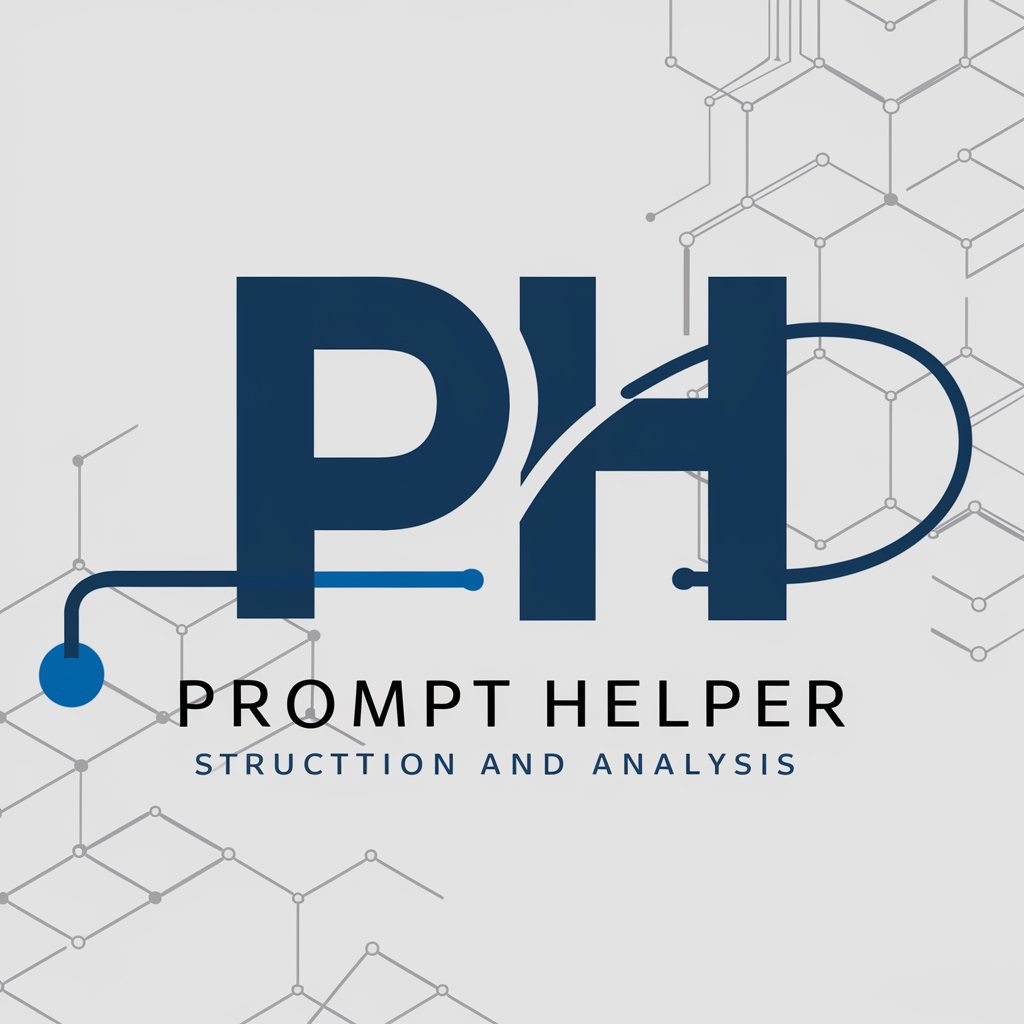
먀옹철 - 고양이 건강 상담소
AI-powered Cat Health Advisor

Linguistic Ninja
Empower your language journey with AI
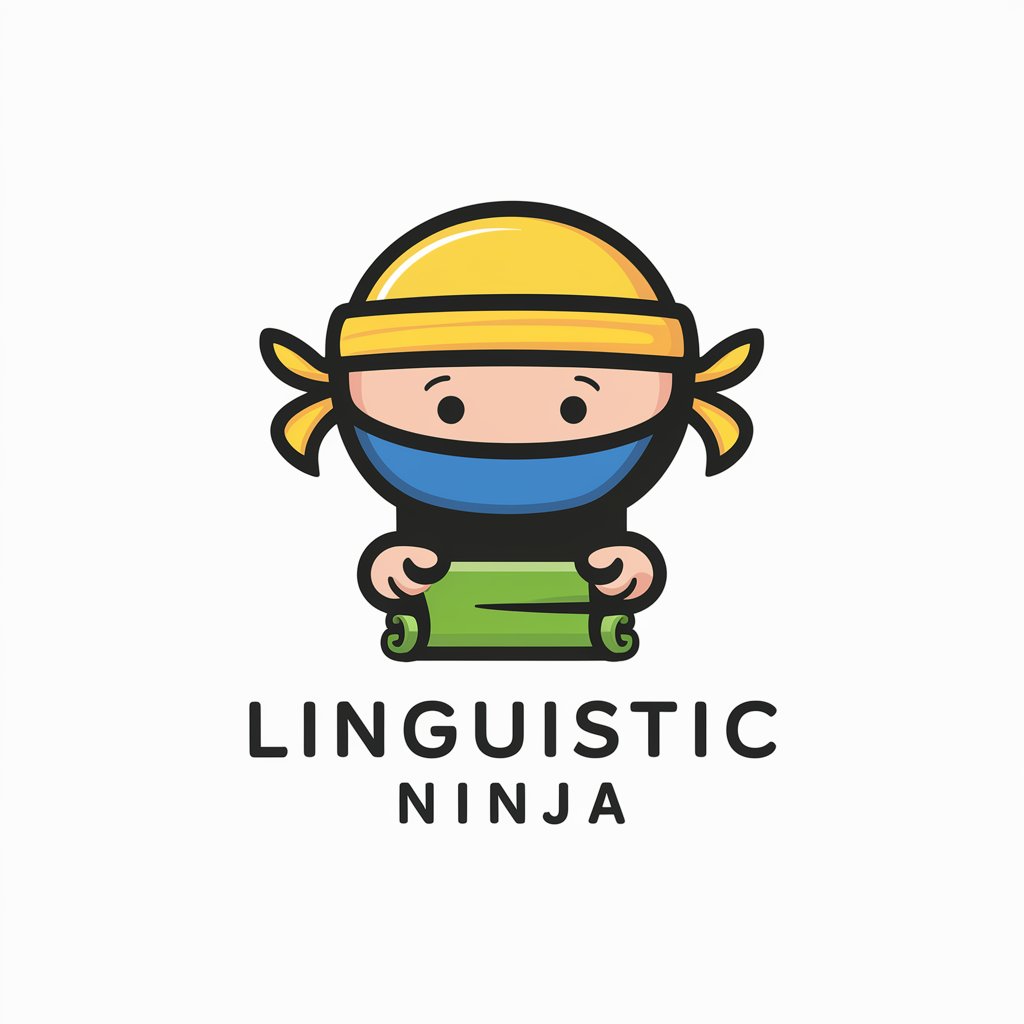
Frequently Asked Questions About Freud
What is Freud?
Freud is an AI designed to provide psychological support, offering insights based on psychological theories, facilitating self-reflection, and providing coping strategies.
How does Freud maintain confidentiality?
Freud respects user privacy by not storing personal data or sensitive information, ensuring conversations remain confidential.
Can Freud diagnose mental health conditions?
Freud is not designed to diagnose. It provides general support and guidance, emphasizing the importance of consulting healthcare professionals for diagnoses.
How often should I interact with Freud?
Interaction frequency can vary based on personal needs. Regular conversations can help track mood changes and develop self-awareness.
Is Freud a substitute for therapy?
No, Freud is a complementary tool designed for educational and self-reflection purposes, and not a replacement for professional therapy.



